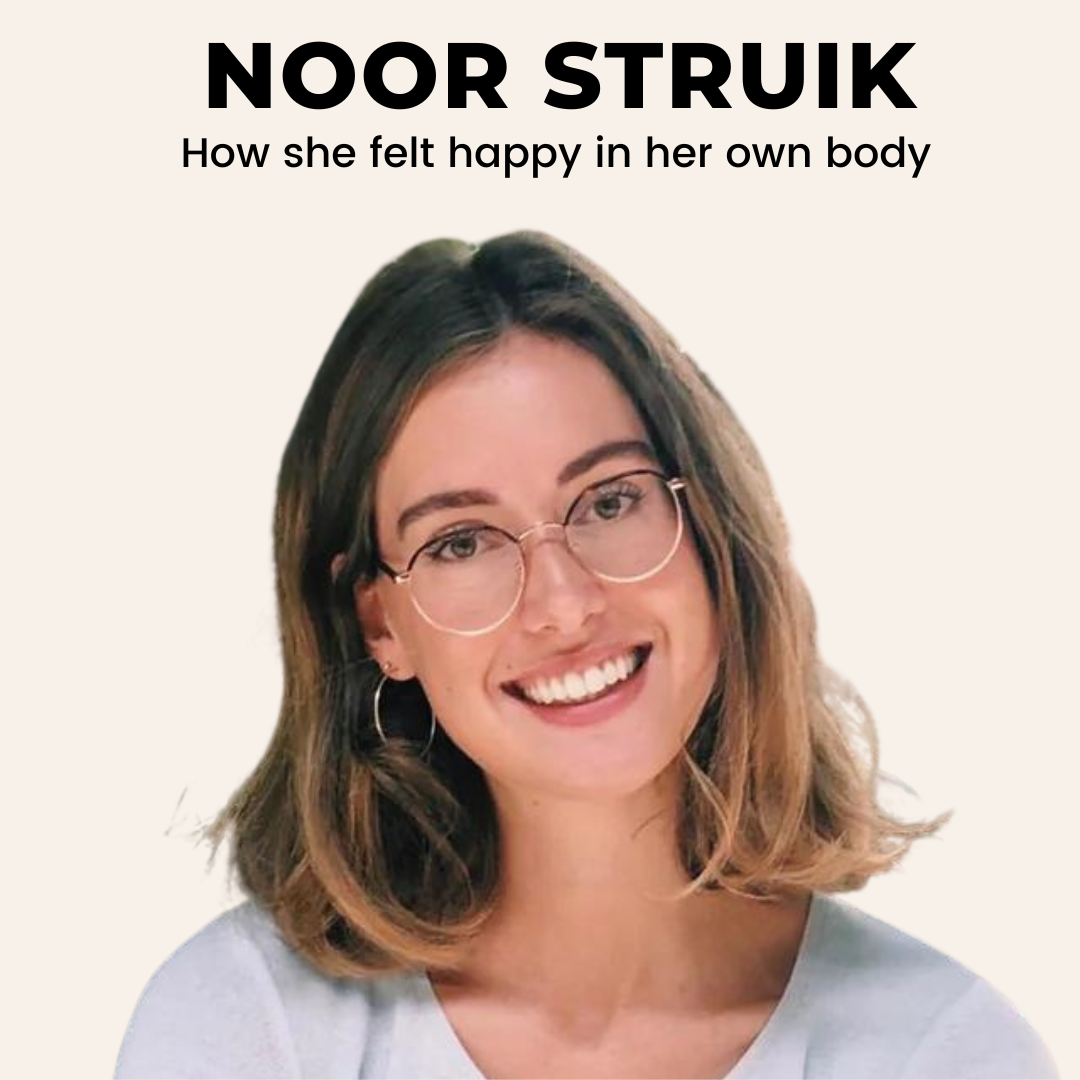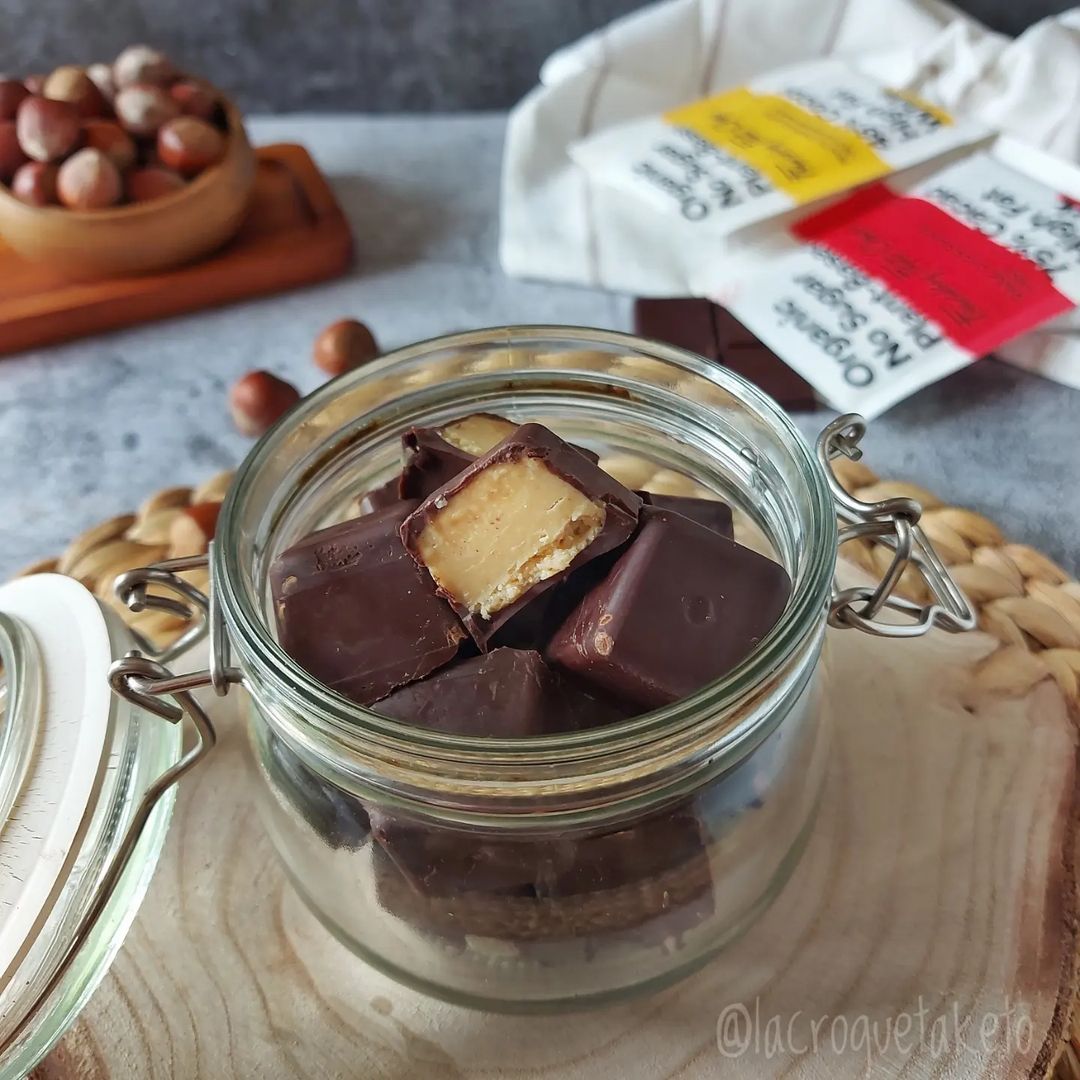People have been looking at the world through a negative looking glass for some time now. The reason for this is that the world has past decades have been associated directly with weight loss diets and how society has put pressure on many of us to look a certain way. However, the reality is that diet is simply the way we eat, our eating lifestyle for that matter.
In this podcast, Noor Struik, a low-carb nutritionist who has collaborated with us for over three years, and Louisa Mesquita, our founder, talk about the low-carb diet and how they started following it because they weren't happy with the way their bodies felt.
I think it's fair to say almost everyone has tried some kind of weight loss-weight gain at some point in their lives. However, whether it was successful in what you were trying to achieve or not, in our conversation, we talk about everything else that goes underneath. From fatigue and loss of strength to nutrient deficiencies, dieting just for physique never has a positive outcome.
Towards the end, we dive into ways to optimize our health once we reach a point of having a better relationship with food, our body and our mind. It’s not about advising for all but about learning how to hear your body and look out for signs so you can constantly be helping yourself become your best version.
The background story of Noor
They met on Instagram when Louisa still had the office in Amsterdam. They met there for the first time. That is now three years ago. It was amazing to have the same interest. It felt great for both of them. Noor studied nutrition and dietetics. 6 years ago. That was her first study, but she still had a lot of questions. She did her master's in Nutritional eco epidemy. Then you are looking at big data and making connections to see what someone eats, and specific outcomes like diseases. Also, during that study, she was focused on the food part. She could choose where she wanted to do her internship. Back then, she was working as a dietitian.
Especially the people who had seen it all. I was putting them on the food pyramid. Thinking that is how it works. They didn’t get any results. That was frustrating. That was when she thought maybe this doesn’t work for everyone. Back when she had to choose her internship, she ended up looking at this bog research institution in Sydney. They were researching Low carb diets, and diabetes, I thought, okay that is where I have to go. So she went there, Conducted a research and became a part of a big low-carb community in Australia, which is way bigger than in Holland. It was perfect. For her, it was a step to see what she learned and what she wanted to do with it. She was working with a low-carb dietitian, who told her why don’t you try it yourself.
Noor her relationship with food
Back then, Noor was having a hard time with her food. She thought she had a healthy relationship with it, but still, she had a lot of headaches and a hard time with concentrating. She thought is she going to skip my carbs? You're limiting something to your body. She gets that that can be scary. She gave herself a month. Step by step. It was the best thing she ever did.
Back then, she had a chilly life. She went for a morning swim two times a day. That feeling that you can eat two times a day and still feel satisfied is amazing. Talking about it makes her give the feeling that she wants to go back. The beginning is so amazing, but now it is normal.
In Sydney, it was really big back then. In the Netherlands, it is happening more and more but it is not as big as it is there. It was easier back there.
Louisa her relationship with food
Lousia finished university and had no idea what she wanted to do with her life. She wanted to go back to her roots which were in Brazil. There I had a lot of time to read a lot of books, and because I didn't know many people there I had a lot of free time. I did a lot of research. It was interesting because she was diagnosed with PCOS 8 years ago. Doctors in the Netherlands recommended that I eat little and eat my fruits and eat some oatmeal. When she went to Brazil, she didn’t feel good at all. She read the book Fat for feal from Dr Mercola. It was like eating healthy fat that made you feel satisfied. She thought fats would make you fat. She was always so against her normal diet. With her, she was like I can try it. She eats so much fat like an avocado smoothie with so many fats, and she even lost weight. She even got my period without having a little bit of pain. Besides that, she could even eat two or three times a day. She was full. She remembered the first week. She felt like okay, this is for me. She did more research and learned how important it is to have enough protein. That is something she experiments with.
When you only take fats and carbs, that is not all your body needs. You need to take your protein.
The big difference between Keto and low-carb
It has to do with the amount of fats you eat. If you are on a ketogenic diet, you are in ketosis. So you are in this fat-burning state. That is why a lot of people who eat keto track their food. They want to be below 20 - 50 g carbs a day. She always says that that difference is different for each person. When you run a marathon, you can probably eat 80 - 100g carbs a day and still be in ketosis. But when you are overweight and don’t move a lot, it might be 20 or even lower. So we created a lot of boxes. But when you're looking for what I want, which is being in ketosis, this is different for everyone.
Most of our bodies can only use carbs as energy. You have to make your body fat addicted again to make sure your body can use fat as an energy source. That makes your body more flexible. For example, when you eat french fries and your body is on that fat burning, your body burns that fat. It is better able to stay fat-burning.
Do you have to be in ketosis all the time?
She don’t think you have to. But some people think they do. Even though the years it changed how your keto works for you. Low Carb can be for everyone. Not only for women.
Personally, she don’t like to say we need to limit our carbs. But she performs so okay we need to curse out fats and curse our protein intake. That is also about your relationship with food. If you prioritize the right things like the fats and the protein, there isn’t even space for carbs. It becomes easy to limit your carb intake.
At the beginning, Louisa focused on her fat. She didn’t focus on her carbs. She made sure my meals had healthy fats. Now it is more protein, but back then, it was mostly fats. She counted it in the beginning. That she had 57% of fats, but that was so easy she thinks it is very important. You don’t need the carbs to take your energy.
And at the beginning Louisa focused on her fat. She didn’t focus on her carbs. She made sure my meals had healthy fats. Now it is more protein but back then it was mostly fats. She counted it in the beginning. That she had 57% of fats. But that was so easy she thinks it is very important. You don’t need the carbs to take your energy from.
Just start somewhere, start small. When you start with only skipping the sugar for now your glucose becomes stable and then every other step becomes so much easier. Because you are not gonna be that hungry anymore or not gonna be that graving anymore.
One more thing Noor did when she started is starting journaling. Maybe for people that are starting that they can see how they feel and start in the morning. Am I hungry or am I energized when I look in the mirror? Do I feel bloated? Even things like when I workout how I feel. That was a big thing to see. Not just by looking on the scale. Your sleep, your skin, everything will feel different.
Best supplements you suggest?
Supplements can never be replaced or make up for a bad diet. That is not how it works. What you see when someone has been eating for years and years has been in this undernutrition state or calorie counting. What we always do in our practice is that we are starting with a blood test. Because we want to know what your current status is. What is it that you do? How are your iron levels? How are your vitamins? She finds it very risky just to take whatever. There are a couple of supplements, magnesium for example, you can check your symptoms when you are feeling dehydrated, have headage, or have cramps. These are all indications of a magnesium division. Magnesium is always something that she will say is good for you. Could you take it? Same with salt. If people are starting with the low carb add some more salt. You do not contain as much water. This means you're losing more salt, sodium and, with that also, magnesium. It is really important to add your salt because salt holds onto water. These two are important. One more supplement is collagen. This is important for your protein intake but also for your gut lining. It is good for your skin, your hair and your nails.
She thinks a supplement for meat or fish doesn't matter. It is not effective.
She just advises taking a blood test and seeing what you need. You are never too old to change your diet.
The reason why you should start is that you want that. You need something to keep you motivated.
Together Louisa and Noor made a beginner guide on how to start the Keto diet.
Instagram: thenourishingstate
Website: thenourishingstate.com




Leave a comment
All comments are moderated before being published.
This site is protected by hCaptcha and the hCaptcha Privacy Policy and Terms of Service apply.